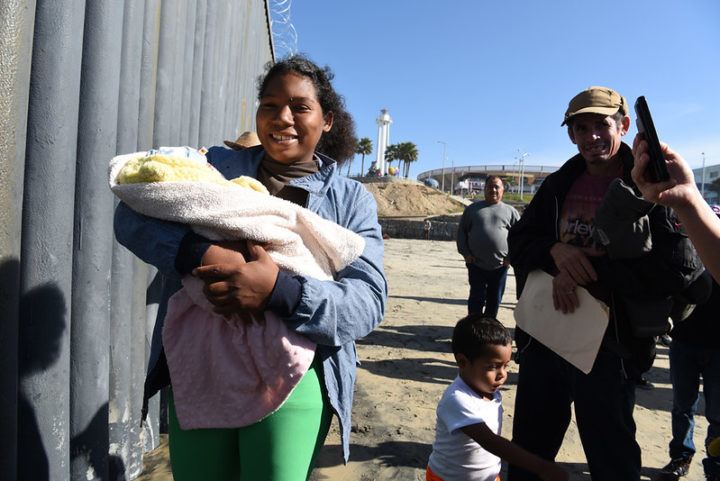By Jhon Sánchez
In 1772, James Somerset was a slave brought to England by his owner Charles Stewart. Somerset managed to escape but later was apprehended and put into custody. Based on the habeas corpus petition, Somerset asked for his freedom, arguing unlawful detention. The judge, Lord Mansfield, granted him his release because England didn’t have slavery.
Today in 2020, Justice Alito, writing for the majority of Supreme Court, decided that Federal courts cannot review an Immigration decision, denying entry to an asylum seeker.
The case involves Vijayakumar Thuraissigiam, a Sri Lankan national who was kidnapped, beaten up, and tortured in his country because of his ethnicity. He was apprehended shortly after crossing the US border. Even though Thuraissigiam may be torture or killed in Sri Lanka, an immigration officer didn’t believe him. In a single interview with no more evidence than Thuraissigiam’s testimony and without a lawyer, Immigration ordered his deportation.
For the court, the decision made by an immigration officer after interviewing an applicant for two or three hours is due process enough. Alito forgot that, like in Somerset, asylum seekers are escaping from systems that are contrary to our constitutional values. It seems that no matter how outrageous and contrary to law, Immigration’s decisions would be that the courts need to remain silent and allow the abuse to continue. As if it were for a comedy show, Alito writes,
“While respondent does not claim an entitlement to release, the Government is happy to release him—provided the release occurs in the cabin of a plane bound for Sri Lanka.”
Justice Breyer concurred, explaining that this would apply to this specific case because there are other situations where the court could and should interfere. However, many advocates fear that Trump’s administration would take advantage of the broader interpretation of the ruling.
Lee Gelernt, attorney for the asylum seeker, says, “And what remains to be seen is how broadly the Trump administration will try and interpret it. The way we read the opinion, even the majority opinion, is it applies only to people right at the border who have asylum claims. And we’ll have to see if the Trump administration tries to expand it. Right now, the Trump administration had already been trying to do fast-track deportations for people living in the country for up to two years anywhere in the country, in the interior of the country.”
The ruling under Thuraissigiam affects Latin-Americans, Asians, Africans, people who cross the borders or just arrived in the airport looking for asylum. It ignores those legal principles under domestic and international law that we need to protect people escaping from persecution.
But there is one more tragedy here: The thousands of immigration officers who eventually may be forced to make unconstitutional decisions.
Molly O’Tool reported, “Asylum officers told me that even when they find one of those unicorn cases where they check off all the boxes and recommend not returning to Mexico, their supervisors overrule them. Anne,[an immigration officer], told me and my producer, Nadia Reiman, about one asylum seeker[‘]s case where their attacker even spelled out their motive, and it still didn’t fly.” She also interviewed an immigration officer who said, “It was basically a situation where there was a really clear connection to the nationality. Like, the persecutor had, like, really said, like, I am harming you because of this nationality– your nationality. And the harm was really, really severe. It was, like, definitely torture. And it was really clear that the police, like, weren’t going to do a thing about it– didn’t care at all. And the supervisor rejected it.”
And even in a case like that, there is no court to say, “Stop it.” As Justice Sotomayor writes, “Today’s decision handcuffs the judiciary’s ability to perform its constitutional duty to safeguard individual liberty and dismantles a critical component of the separation of powers.”
At least one immigration officer had quit in protest against these policies. Doug Stephens, who used to work for the asylum office in San Francisco, wrote a memorandum explaining the unconstitutionality of Trump’s Immigration policies and quit. “You’re literally sending people back to be raped and killed…That’s what this is,” he says
To celebrate on June 26, the Trump administration issued a rule that delays the ability of an asylum seeker to ask for a work permit. Under the previous ruling, if an asylum seeker has a pending case, he or she could ask for a work permit after 150 days of the claim being pending. Now, the petitioner needs to wait a whole year.
Still, we have some hope. On July 1st, a district judge stroked down immigration Trump’s rule that mandates asylum seekers to apply to a third country before applying to the US. Based on procedural grounds, the decision would leave some room for the government to amend and continue with its damaging policies.
The case of the asylum seekers coming from the global south has many similarities to the Great Migration, the displacement of six million African Americans from the rural south. Like the African Americans, our brothers and sisters are escaping from torture, extrajudicial executions, and lynching. Like in the Great Migration, the North never welcomed them. They accused them of committing crimes, of being sick, and having dubious morale. The North allowed them to stay in segregated neighborhoods. Today, we not only have a debt to the African American community but also our society suffers from inequality, a gap in wealth difficult to cure. Perhaps that was our sin: the lack of hospitality like in Sodom and Gomorrah.










